Sharing at the scientific workshop “ Unlimited power and unpredictable challenges of artificial intelligence (AI) - Impact and policy response ” held on the morning of September 15, Minister of Science and Technology (S&T) Nguyen Manh Hung emphasized that AI must become the country's intellectual infrastructure, helping Vietnam not only apply but also master the technology.
Overview of the Scientific Workshop “The Unlimited Power and Unpredictable Challenges of Artificial Intelligence (AI) - Policy Impact and Response. (Photo: Thuy Linh)
Vietnam will build a national AI supercomputing center and a shared open AI data system, and widely popularize AI in society, following the "AI popular education" model. Each citizen will have their own digital assistant, helping to double social intelligence even though the population does not increase.
AI – the driving force to affirm national position
The scientific conference “Unlimited power and unpredictable challenges of artificial intelligence (AI) - Impact and policy response” is an event organized by the Ho Chi Minh National Academy of Politics in coordination with the Ministry of Public Security , the Ministry of National Defense, the Central Theoretical Council and the Ministry of Science and Technology at the National Exhibition Center.
In his opening speech, Senior General Luong Tam Quang, Minister of Public Security, affirmed that in the fourth industrial revolution, AI is considered one of the key technologies, a factor that can lead to changes in the global order in the future.
General Luong Tam Quang speaks at the Conference. (Photo: Thuy Linh)
With the ability to promote economic growth, optimize production, improve healthcare, innovate education, and enhance social governance, AI helps countries save costs, increase efficiency, expand knowledge, and is a resource, a force, and a driving force to affirm national position in the digital age.
“With strategic vision and sharp thinking, our Party has issued and resolutely led the implementation of Resolution 57, identifying science, technology, innovation and national digital transformation as vital choices, the golden key to help the country overcome the middle-income trap, push back the risk of economic lag and achieve two 100-year strategic goals, by the middle of the 21st century, our country will become a developed country with high income; identifying the development of strategic technology, including artificial intelligence technology, as a top important breakthrough, the main driving force for the rapid development of modern productive forces, innovation in national governance methods, and socio-economic development.
According to assessments, the potential for developing the AI field in Vietnam is huge, forecast to contribute about more than 80 billion USD, equivalent to 12% to Vietnam's GDP in 2030 if widely applied ," General Luong Tam Quang emphasized.
Besides its potential, AI also poses unprecedented challenges in terms of legal gaps, ethical risks, misuse of technology for cybercrime, information warfare, data privacy violations, especially the risk of impact on national defense and security.
According to Professor Nguyen Xuan Thang, Director of the Ho Chi Minh National Academy of Politics and Chairman of the Central Theoretical Council, the most worrying risk of AI is the possibility of losing control over self-learning and self-adapting AI systems, especially when they develop in a direction beyond human understanding and supervision.
AI has already had negative impacts on the labor market, as many traditional occupations are replaced, leading to increased unemployment, especially for unskilled or digitally skilled workers. In addition, if training data is biased, AI will reproduce and amplify social biases, leading to biased and unfair decisions.
Prof. Dr. Nguyen Xuan Thang speaking at the event. (Photo: Thuy Linh)
“AI’s collection, analysis and use of personal data also poses a risk of privacy violations, as personal information can be exploited, tracked or misused. AI can also be used for dangerous activities such as online fraud, spreading fake news, fake voices and images (deepfake), causing public confusion and affecting security and social order.
Meanwhile, globally, even in the most developed countries, the current legal system and ethical regulations have not kept up with the explosive speed of AI, making it very difficult to determine responsibility and control," emphasized Prof. Dr. Nguyen Xuan Thang.
Citing the draft revision of the National Strategy on Research, Development and Application of Artificial Intelligence to 2030, Prof. Dr. Nguyen Xuan Thang said that the new strategy has expanded its vision to 2045, aiming to make Vietnam a data-rich country with the capacity to deploy AI solutions in the top 10 countries in the world, while developing a large Vietnamese language model, data infrastructure and high-performance computing.
Looking at the reality, Prof. Dr. Nguyen Xuan Thang pointed out the inherent problems such as: Lack of high-quality human resources, limited technical infrastructure, fragmented R&D investment, fragmented AI ecosystem and lack of legal foundation. "In particular, Vietnam currently does not have a specialized law on AI, which makes risk control, data protection and privacy assurance unsynchronized and ineffective, " said the Professor.
National AI Ethics Code to be Issued
AI opens up great opportunities, but also raises many issues regarding ethics, employment, and social trust. Therefore, according to Minister Nguyen Manh Hung, we must develop AI that is fast, safe, and humane. AI is for humans, not replacing humans but serving humans, AI is an assistant to humans.
Minister of Science and Technology Nguyen Manh Hung speaks at the Workshop. (Photo: Thuy Linh)
AI is a powerful tool, but humans are the ones who make decisions. “Let AI support, not replace, human thinking, values and responsibilities,” Minister Nguyen Manh Hung emphasized.
According to the Minister, Vietnam will issue a national AI ethics code that is in line with international standards but designed to suit Vietnamese realities. At the same time, it will develop an AI Law and an AI strategy based on six core perspectives, including:
First , manage according to risk level.
Second , transparency and accountability.
Third , put people at the center.
Fourth , encourage domestic AI development and AI autonomy.
Fifth , take AI as a driving force for rapid and sustainable growth.
Sixth , protect digital sovereignty. Data, infrastructure and AI technology are the three strategic pillars of digital sovereignty.
Minister Nguyen Manh Hung also emphasized the balance between global "big tech" and the advantages of businesses and organizations that understand local context, language, culture, and specialized data to develop specialized AI applications domestically.
"Vietnam's path to AI development is the word 'and': global and local, cooperation and autonomy, big tech and startups, open technology and control, open data and protected data, platform AI and specialized customized AI. This is the key to developing AI quickly, sustainably, and humanely," the Minister of Science and Technology shared.
Vietnam AI Manifesto is: Humanity - Safety - Autonomy - Cooperation - Inclusion - Sustainability.
Finally, Minister Nguyen Manh Hung affirmed that AI is a powerful tool that helps free up human labor for higher-value creative work, but humans are still the final decision makers. AI is an assistant, not a replacement for human thinking, values and responsibilities.
Minh Hoan
Source: https://vtcnews.vn/pho-cap-ai-theo-mo-hinh-binh-dan-hoc-vu-ar964268.html



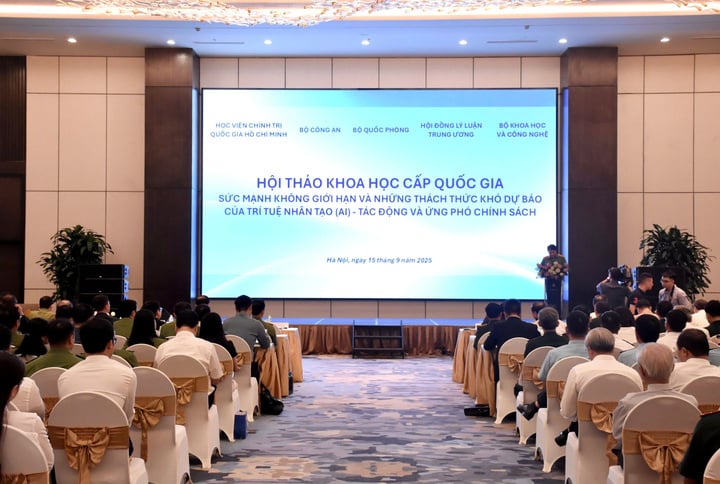
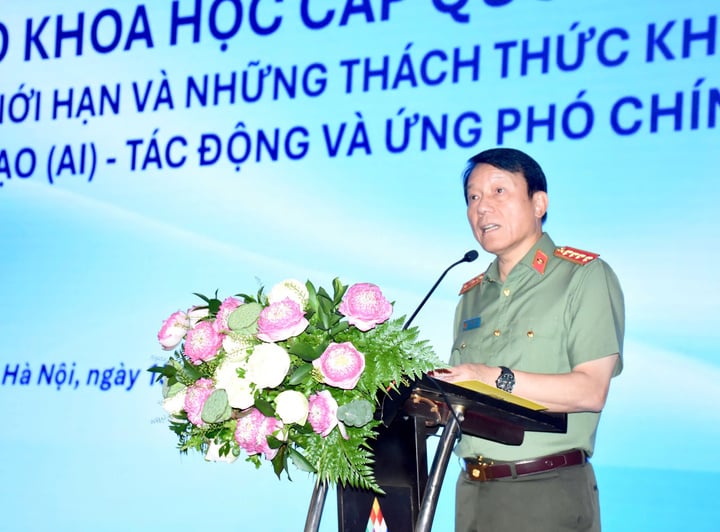
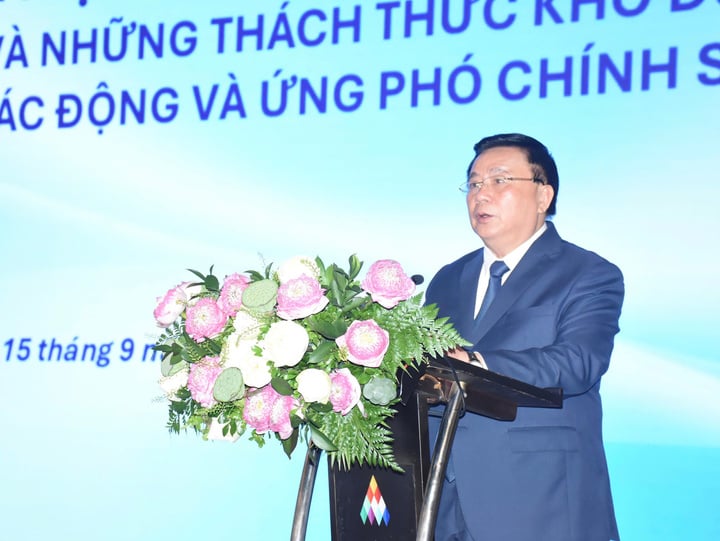
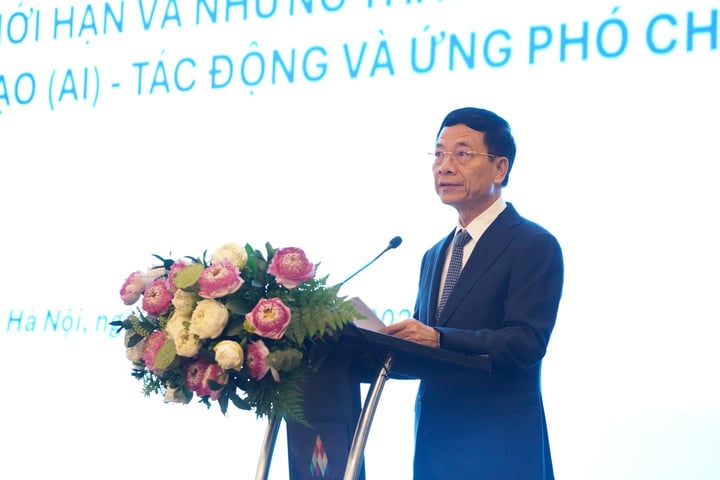

![[Photo] President Luong Cuong attends the opening ceremony of the new school year at the National Defense Academy](https://vphoto.vietnam.vn/thumb/1200x675/vietnam/resource/IMAGE/2025/9/15/c65f03c8c2984e60bd84e6e01affa8a0)

![[Photo] General Secretary To Lam attends the 80th Anniversary of the General Department of Defense Industry](https://vphoto.vietnam.vn/thumb/1200x675/vietnam/resource/IMAGE/2025/9/15/fb8fd98417bb4ec5962de4f7fbfe0f6a)




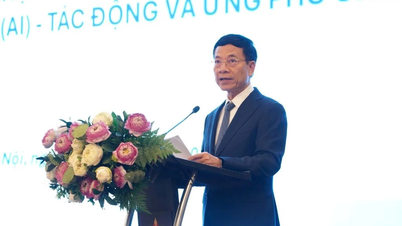









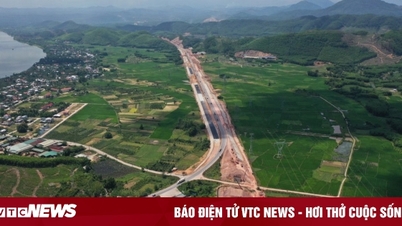


































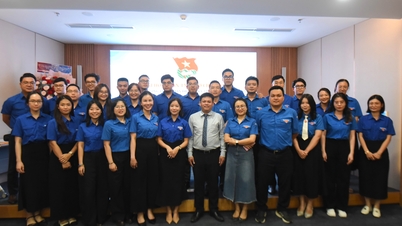
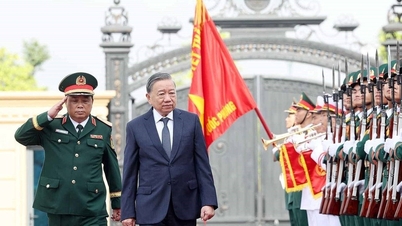







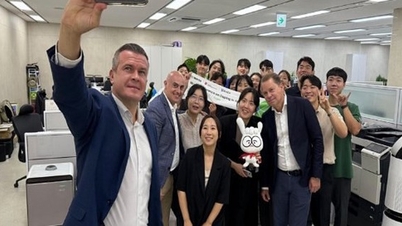











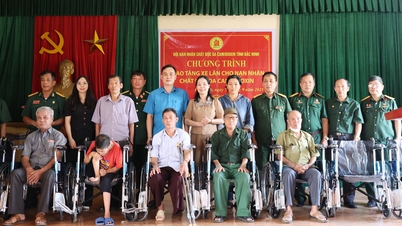

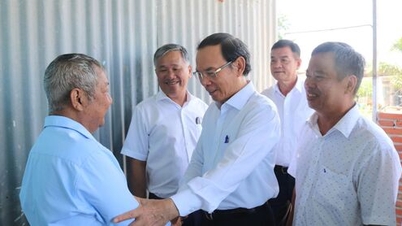





















Comment (0)